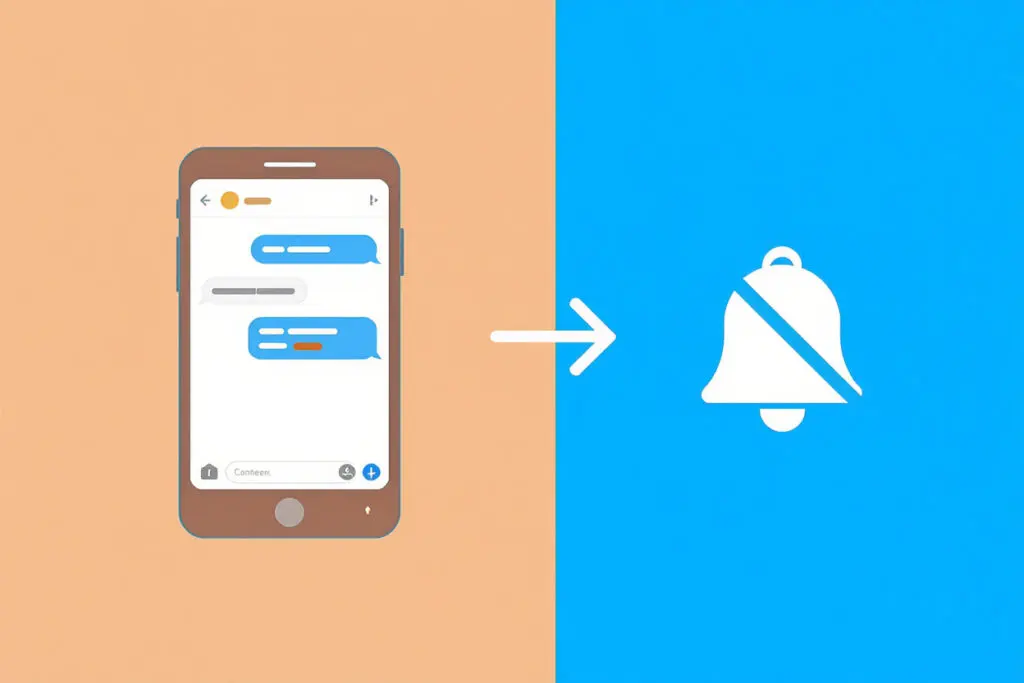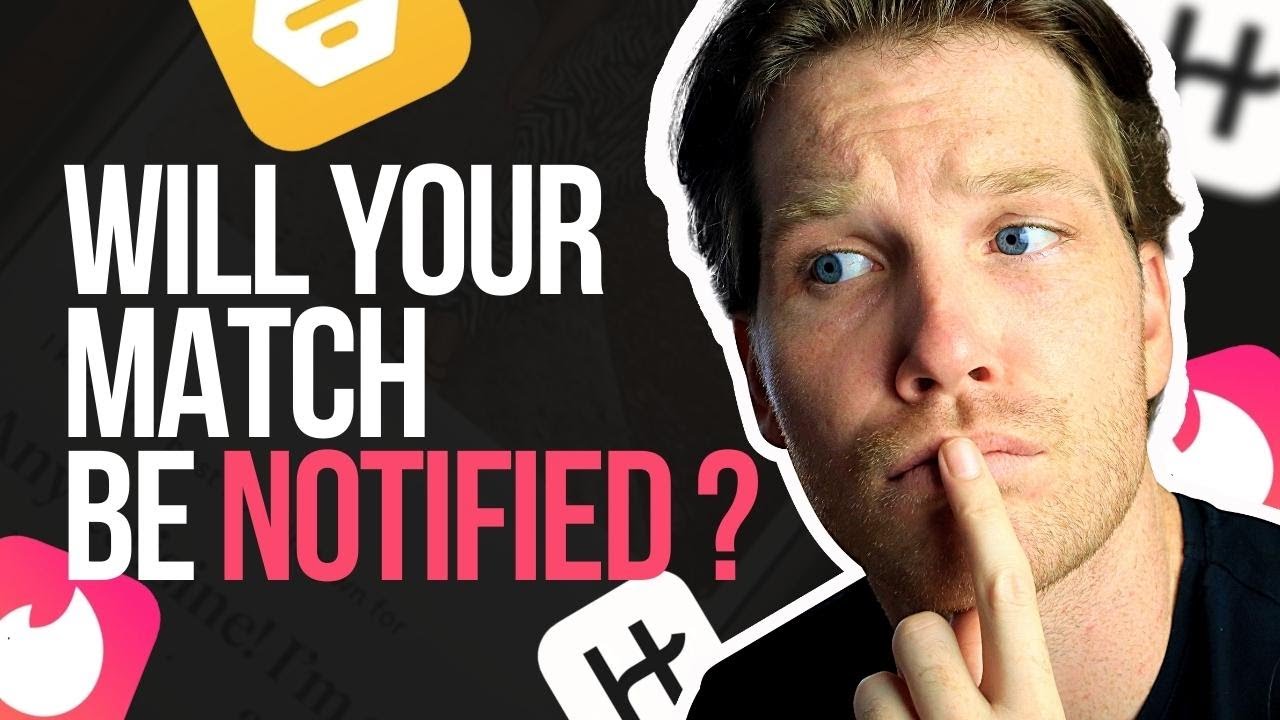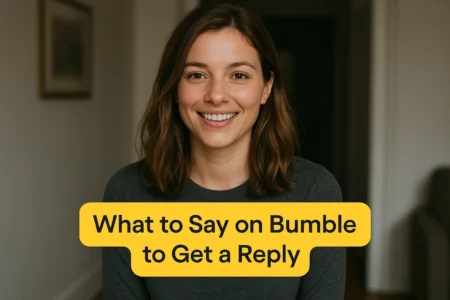Let’s talk about that little spike of anxiety you get when you’re chatting with someone new on a dating app. Things are going well, the banter is good, and you want to share the conversation with your best friend for a second opinion.
You take a screenshot.
Immediately, you panic. Did they see that? Does the app tell them? This is the modern dating dilemma. The big question on everyone’s mind is: “does bumble alert screenshots?”
It’s a valid concern. In a world where Snapchat has normalized screenshot notifications for years, we’ve become conditioned to assume every app is watching.
Well, you can take a deep breath. I’m here to give you the definitive answer and clear up the confusion surrounding privacy on Bumble.
More in Bumble Category
What Does Travel Mode on Bumble Mean
How Often Does Bumble Update Location
The Short Answer: No, Bumble Does Not Notify Users of Screenshots
Let’s get straight to the point. As of right now, Bumble does not send any kind of notification, alert, or signal when you take a screenshot.
This applies to all parts of the app.
Whether you are screenshotting their profile pictures, their bio, or your private conversation history, the other user remains completely unaware.
Bumble operates much like Instagram DMs or traditional texting. The action of capturing your screen is handled by your phone’s operating system, not by the Bumble app itself.
So, technically speaking, you are safe to capture that witty opener or that bizarre profile prompt. However, just because you can do something doesn’t always mean you should. We’ll get into the etiquette of that later.
Why Do We Want to Screenshot Dating Apps Anyway?
Before we dive deeper into the mechanics, let’s look at why this is such a common practice. Screenshotting dating apps isn’t usually malicious. In fact, it’s become a standard part of the modern dating process.
We are social creatures. When we date, we often seek validation and advice from our trusted friends.
Getting the Group Chat’s Opinion
This is probably the most common reason. You match with someone who seems great, but maybe their profile is a little quirky. Or perhaps they said something funny, and you want to share the laugh.
I know when my friends and I are actively dating, our group chat is basically a running commentary on our Bumble experiences. It’s a way to navigate the often confusing signals of early digital romance.
We use screenshots for:
- Analyzing a conversation’s “vibe.”
- Deciphering a confusing message.
- Getting approval on a profile before swiping right.
- Sharing a particularly good (or bad) interaction.
The Red Flag Repository
Sometimes, screenshotting is a safety measure. The online dating world isn’t always safe. Unfortunately, you sometimes encounter people who are rude, inappropriate, or downright aggressive.
If a conversation takes a dark turn, taking a screenshot is crucial. It serves as evidence.
If you need to report a user to Bumble, having photographic proof of the violation makes the process much smoother and ensures action is taken. You are documenting the incident, which is a smart move.
Saving Information for Later
Let’s be practical. Sometimes people share details you want to remember. Maybe they recommended a great bookstore or a specific restaurant you want to try.
Instead of writing it down, it’s much faster to just grab a quick screenshot of the conversation. Furthermore, if you decide to take a break from the app, you might screenshot a promising match’s details (if they shared their number or social media) before you delete the app.
The Technical Side: Why Some Apps Alert You and Others Don’t
You might be wondering why Snapchat can detect screenshots so easily, but Bumble, Tinder, and Hinge cannot. It seems inconsistent.
The difference lies in how the apps are built and how they interact with your phone’s operating system—specifically iOS (for iPhones) and Android.
The Challenge for App Developers
Detecting a screenshot is surprisingly difficult for developers. When you take a screenshot, it’s an action controlled by your phone, not the app running on the screen.
Apps don’t automatically get a notification from the operating system saying, “Hey, the user just captured the screen.”
Snapchat invested heavily in developing workarounds to detect this activity. They essentially created systems that constantly look for the signs of a screenshot being taken. However, these systems are imperfect and often break when Apple or Google updates their operating systems.
Why Doesn’t Bumble Implement This Feature?
If Snapchat can do it, why not Bumble? It comes down to priorities and philosophy.
Bumble’s primary focus is on creating connections and ensuring user safety through features like reporting and blocking. Implementing a complex, often unreliable screenshot detection system simply hasn’t been a priority for them.
Moreover, screenshot notifications can actually hinder the user experience. They can make conversations feel policed and less natural. It creates an atmosphere of distrust, which isn’t exactly conducive to romance.
So, ultimately, does bumble alert screenshots?
No. The technical infrastructure isn’t there, and it doesn’t seem to align with their platform goals. They rely on users to behave responsibly rather than technologically preventing the action.
Does Bumble Alert Screenshots of Profiles?
This is a very specific concern. Maybe you see someone you know in real life, or perhaps you see a profile so outrageous you have to share it.
You are completely safe to screenshot a Bumble profile.
The user will not know that you viewed their profile, let alone that you captured an image of it. Unlike LinkedIn, which notifies users when their profile is viewed (if you have that setting enabled), Bumble maintains anonymity during the swiping process.
You can analyze their photos, read their prompts, and capture the whole thing without any digital repercussions from the app itself.
What About Their Photos?
Sometimes you want to screenshot a photo to try a reverse image search. This is a common safety tactic to verify that the person you are talking to is who they claim to be.
Again, Bumble does not prevent this. You can screenshot individual photos without the user knowing.
Does Bumble Alert Screenshots of Chats?
The chat window is where the most sensitive information is shared. This is where vulnerabilities emerge, and consequently, this is where the fear of screenshots is most potent.
If you are having a deep conversation, sharing personal details, or perhaps engaging in some spicy banter, the idea of that being captured is unsettling.
But the rule remains the same. Bumble does not notify users if you screenshot a private chat.
The Illusion of Ephemeral Communication
We often treat digital communication as ephemeral—meaning it disappears. We assume that our chats exist only within the confines of the app.
However, this is a dangerous assumption. Once you send a message, you lose control over it. The recipient can capture it, save it, and potentially share it. This is a fundamental truth of the internet, not just Bumble.
The Unwritten Rules: The Etiquette of Screenshotting
Just because Bumble allows screenshots doesn’t mean there aren’t social rules involved. Technical permission is different from social permission.
Let’s explore the ethics and etiquette of capturing someone else’s profile or words.
When is it Generally Acceptable?
There are situations where screenshotting is widely considered acceptable in the dating world.
- Documenting Abuse: As mentioned earlier, if someone is harassing you, threatening you, or sending unsolicited explicit content, you should absolutely screenshot it and report them. Safety comes first.
- Sharing Harmless Humor: If a profile has a genuinely funny, public-facing prompt, sharing it privately with a friend is usually fine.
- Getting Advice on Your Own Messages: If you are unsure how to respond to a message and screenshot the chat to ask a friend for advice on your next move, this is standard practice.
When Does it Get Creepy?
The line between harmless sharing and violating someone’s privacy can be blurry. But some actions are definitely over the line.
- Mass Sharing: Sharing a screenshot with one or two close friends is one thing. Posting it on social media, sending it to large groups, or using it to publicly mock someone is completely unacceptable.
- Sharing Sensitive Information: If someone confides in you about their personal life, mental health, or family situation, that information should be treated with respect. Screenshotting and sharing that violates their trust, even if they never find out.
- Obsessive Documentation: Screenshotting every single message in a conversation is excessive and honestly, a bit obsessive.
Think before you share. Ask yourself: “How would I feel if someone shared this screenshot of my profile or my words with others?”
Privacy, Sharing, and Potential Legal Issues
While Bumble won’t alert the user, that doesn’t mean you are free from consequences if you share those screenshots irresponsibly. The implications of sharing private digital communication can be significant.
The Expectation of Privacy
When two people engage in a private chat on a platform like Bumble, there is a reasonable expectation of privacy. They assume they are talking one-on-one.
When you take that conversation out of the app and show it to others without consent, you are violating that expectation. This can ruin potential relationships and damage your reputation.
Are There Legal Consequences?
In some cases, sharing screenshots can lead to legal trouble, depending on the content and where you live in the United States.
For example, if the screenshots contain explicit images shared without consent, you could be violating “revenge porn” laws. These laws are designed to protect individuals from the non-consensual distribution of private, sexual images.
Furthermore, if the shared screenshots are used for harassment, stalking, or defamation, there could be legal avenues for the victim.
It’s crucial to understand that digital actions have real-world consequences. Organizations dedicated to digital rights and safety emphasize the importance of “digital dignity.” The University of Michigan’s resource on digital dignity and privacy offers valuable insights into how we should treat others’ information online.
Always err on the side of caution. Protecting someone’s privacy is far more important than getting a laugh in the group chat.
Bumble’s Approach to Privacy Features
Bumble has positioned itself as the “kinder” dating app, focusing on women making the first move and promoting respectful behavior. While they don’t block screenshots, they do offer other features designed to protect users.
The “Private Detector” Feature
Bumble implemented an AI-driven feature called “Private Detector.” This technology automatically scans images sent within a chat.
If it detects what it believes to be a lewd or explicit image, it automatically blurs it. The recipient then gets a warning that the image may be inappropriate. They can choose to view it or delete it.
This is an excellent feature because it protects users from unsolicited explicit content.
Blocking and Reporting
Bumble’s reporting system is robust. If someone is behaving inappropriately, you can report them easily. Providing screenshots during this process (as discussed) strengthens your case.
You can also unmatch or block users at any time. Once you unmatch someone, they can no longer view your profile or message you.
Snooze Mode
If you want to take a break and ensure your profile isn’t being viewed or shared, you can activate Snooze Mode. This temporarily hides your profile from the swipe deck without deleting your account.
These features show that Bumble prioritizes reactive safety (dealing with issues after they happen) and proactive protection (blurring images), rather than trying to police the act of screenshotting itself.
What Happens If Someone Finds Out You Shared Their Screenshot?
Let’s consider an awkward scenario. You shared a screenshot of a conversation with a friend. Somehow, your match finds out. Maybe your friend knows their friend, or it accidentally gets posted publicly.
This is a relationship killer.
The immediate result is a total breakdown of trust. Dating, especially in the early stages, relies heavily on the feeling that you are building a secure connection. If someone realizes their words are being analyzed by a committee, they will likely shut down or unmatch you.
If this happens, the best course of action is to apologize sincerely. Explain why you shared it (if it was harmless, like seeking advice), but acknowledge that you violated their privacy.
It’s uncomfortable, but owning your mistake is crucial.
Conclusion: Navigate Wisely
In the complex landscape of digital dating, understanding the tools we use is vital. The answer to whether Bumble notifies users about screenshots is a clear no. The technology isn’t there, and frankly, it might never be.
However, this freedom comes with responsibility.
The absence of a notification should not be seen as a green light to share everything indiscriminately. Remember that there is a real human being on the other side of the screen. Their words, their photos, and their vulnerabilities deserve respect.
Use the screenshot function wisely. Use it for safety, use it for documenting abuse, and use it sparingly when seeking advice from trusted friends. But always keep the golden rule of digital etiquette in mind: treat others’ online information as you would want them to treat yours.
Happy dating, and be careful with what you share.
Frequently Asked Questions

What safety features does Bumble offer to protect users?
Bumble offers features like ‘Private Detector’ which blurs explicit images, reporting and blocking mechanisms, and Snooze Mode, all aimed at enhancing user safety and privacy, rather than screenshot detection.
Is it unethical to screenshot someone’s profile or conversation on Bumble?
While technically allowed since Bumble doesn’t notify, ethically it depends on context. Sharing screenshots publicly, sharing private messages without consent, or exposing sensitive information is considered unethical and can breach privacy.
Why do people take screenshots on dating apps like Bumble?
People take screenshots for various reasons including seeking advice from friends, documenting inappropriate behavior, saving information for later, or verifying someone’s identity.
Can I safely screenshot someone’s profile or chat on Bumble without them knowing?
Yes, Bumble does not notify users when someone takes a screenshot, so it is technically safe to do so.
Does Bumble notify users when someone takes a screenshot?
No, Bumble does not send any notifications or alerts when a user takes a screenshot of profiles, conversations, or any part of the app.



